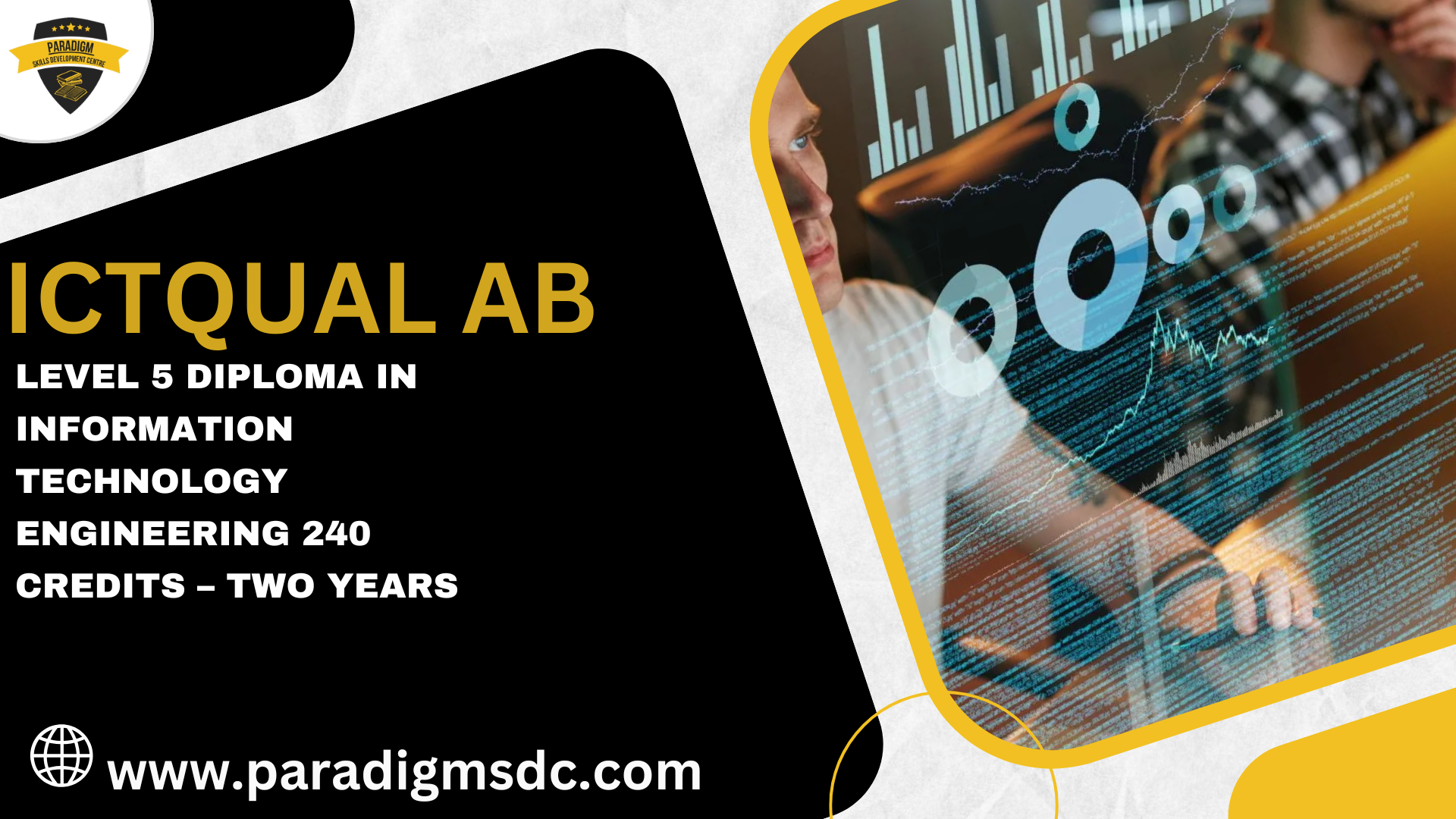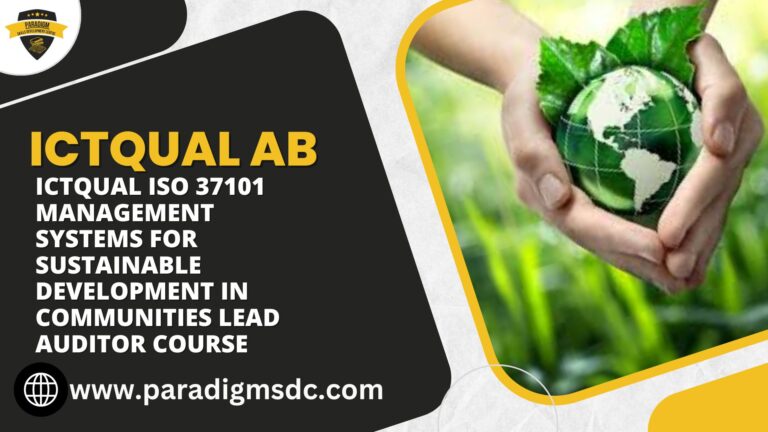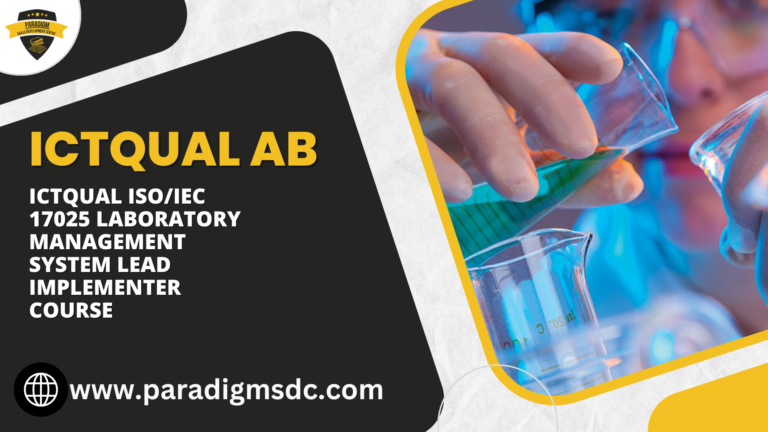If you’re looking to enhance your career in the rapidly growing field of Information Technology (IT), the ICTQual Level 5 Diploma in Information Technology Engineering is an excellent opportunity. This two-year course, offering 240 credits, provides you with advanced knowledge and practical skills in IT engineering. Whether you’re looking to upgrade your current IT skills or pursue a career in this ever-evolving industry, this qualification will set you up for success.
The ICTQual Level 5 Diploma in Information Technology Engineering is a comprehensive course designed to provide students with a thorough understanding of IT engineering concepts, systems, and practices. Over two years, this program covers critical areas such as network management, database systems, software development, and hardware engineering, enabling students to become proficient IT professionals. The course is structured to provide both theoretical knowledge and practical skills, preparing graduates to take on advanced roles in IT engineering and support.
The ICTQual Level 5 Diploma is internationally recognized, making it a valuable qualification for those looking to work in various countries. Whether you aim to join a global IT company or work as a freelance IT consultant, this diploma will open doors to numerous career opportunities.
Enrolling in the ICTQual Level 5 Diploma in Information Technology Engineering is easy. Prospective students should meet the entry requirements, which typically include a Level 4 qualification in IT or a related field, or equivalent work experience. Once enrolled, students will have access to a wide range of learning materials, online resources, and support from expert instructors.
The ICTQual Level 5 Diploma in Information Technology Engineering offers a valuable opportunity for those looking to advance their careers in IT. With 240 credits over two years, this qualification provides a solid foundation in IT engineering, combining theoretical knowledge with hands-on practical skills. Graduates of this program will be well-equipped to take on high-level roles in IT, with a curriculum that is aligned with industry needs. If you’re ready to take the next step in your IT career, the ICTQual Level 5 Diploma is an investment that will pay off for years to come.
Study Units:
- Principles of Information Technology Engineering
- Computer Hardware and Architecture
- Networking Fundamentals
- Operating Systems and Software Applications
- Database Management Systems
- Web Technologies and Development
- Programming and Software Development
- Data Communication and Networking
- IT Project Management
- Cybersecurity Fundamentals
- System Analysis and Design
- Introduction to Cloud Computing
Year 2 (120 Credits)
- Advanced Networking Technologies
- IT Systems Integration
- Data Structures and Algorithms
- IT Governance and Risk Management
- Mobile Application Development
- Software Engineering and Testing
- Advanced Database Management
- Artificial Intelligence and Machine Learning
- Enterprise Resource Planning (ERP) Systems
- IT Infrastructure Management
- E-Commerce Systems and Security
- Final Year Project and Professional Practice
Learning Outcomes:
Year 1 (120 Credits)
Semester 1
- Fundamentals of Information Technology
- Understand the evolution of IT, key technological advancements, and the role of IT in modern industries.
- Recognize the core components of IT infrastructure and systems.
- Computer Hardware and Architecture
- Describe the key components of computer hardware, including processors, memory, and storage devices.
- Analyze the architecture of computer systems and how hardware interacts with software.
- Operating Systems and System Software
- Understand the role of operating systems in managing hardware and software resources.
- Demonstrate knowledge of system software, including file systems, device management, and system security.
- Networking Fundamentals
- Define basic networking concepts such as protocols, network topologies, and communication models.
- Understand the components of network infrastructures, including routers, switches, and cables.
- Software Development Fundamentals
- Develop basic programming skills using a high-level programming language.
- Understand core software development principles such as algorithm design and problem-solving techniques.
- Mathematics for IT Engineering
- Apply mathematical techniques such as algebra, logic, and basic calculus to IT engineering problems.
- Solve real-world IT problems using mathematical modeling and reasoning.
- Database Management Systems
- Understand the principles of database management systems (DBMS) and their role in data storage and retrieval.
- Use SQL to perform basic database queries and manipulate data.
- Introduction to IT Security
- Recognize common IT security threats and vulnerabilities.
- Understand basic security concepts such as encryption, authentication, and firewalls.
- Project Management for IT
- Apply fundamental project management principles, including planning, resource allocation, and scheduling.
- Understand the methodologies used in IT project management, such as Agile and Waterfall.
- Professional Development in IT Engineering
- Develop essential professional skills such as communication, teamwork, and time management.
- Understand the ethical considerations and professional responsibilities of IT engineers.
Year 2 (120 Credits)
Semester 2
- Advanced Networking and Network Protocols
- Analyze advanced networking concepts, including routing, switching, and IP addressing.
- Understand and implement network protocols such as TCP/IP, DNS, and DHCP.
- Systems Analysis and Design
- Use methodologies such as UML to analyze and design complex IT systems.
- Develop system requirements and specifications for software and hardware solutions.
- Software Development and Object-Oriented Programming
- Apply object-oriented programming (OOP) concepts to software design and development.
- Develop and debug software applications using advanced programming techniques.
- Cloud Computing Fundamentals
- Understand cloud computing architecture, deployment models, and services such as IaaS, PaaS, and SaaS.
- Apply cloud computing solutions for scalable and cost-efficient IT services.
- Database Administration and Optimization
- Perform database administration tasks, including backup, recovery, and performance tuning.
- Optimize database queries and manage large-scale databases efficiently.
- Cybersecurity Essentials
- Implement basic cybersecurity measures to protect IT systems and data from cyber threats.
- Understand risk management, threat detection, and prevention strategies.
- IT Infrastructure and Systems Management
- Design, deploy, and manage IT infrastructure components such as servers, storage, and networks.
- Develop strategies for systems management, including monitoring and troubleshooting.
- Mobile Application Development
- Develop mobile applications for platforms such as Android and iOS using development frameworks.
- Apply UI/UX design principles to create user-friendly mobile apps.
- Web Development Basics
- Create dynamic and responsive websites using HTML, CSS, and JavaScript.
- Understand basic front-end and back-end web development techniques.
- Advanced IT Support and Troubleshooting
- Apply diagnostic tools and techniques to troubleshoot complex IT issues in hardware, software, and networks.
- Provide effective IT support in diverse environments, including remote support and on-site troubleshooting.
Semester 3
- Advanced IT Security and Ethical Hacking
- Implement ethical hacking techniques to identify and mitigate vulnerabilities in IT systems.
- Understand legal and ethical considerations involved in penetration testing and cybersecurity.
- Advanced Database Technologies
- Work with advanced database systems, including NoSQL databases, and manage large datasets.
- Understand database scaling techniques, including sharding and replication.
- Cloud Security and Virtualization
- Apply cloud security best practices to protect cloud infrastructures and applications.
- Understand and implement virtualization technologies for efficient resource management.
- Capstone Project
- Apply knowledge from all previous units to design and develop a comprehensive IT solution or system.
- Present and defend a final project, demonstrating practical problem-solving, project management, and technical skills in IT engineering.







